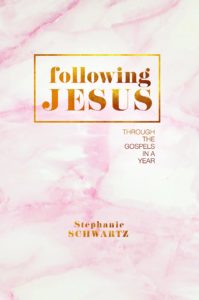Matthew 1:12-17 (ESV)
12 And after the deportation to Babylon: Jechoniah was the father of Shealtiel, and Shealtiel the father of Zerubbabel, 13 and Zerubbabel the father of Abiud, and Abiud the father of Eliakim, and Eliakim the father of Azor, 14 and Azor the father of Zadok, and Zadok the father of Achim, and Achim the father of Eliud, 15 and Eliud the father of Eleazar, and Eleazar the father of Matthan, and Matthan the father of Jacob, 16 and Jacob the father of Joseph the husband of Mary, of whom Jesus was born, who is called Christ. 17 So all the generations from Abraham to David were fourteen generations, and from David to the deportation to Babylon fourteen generations, and from the deportation to Babylon to the Christ fourteen generations.
In verses 12-17, Matthew completes his account of Jesus’ genealogy. Specifically, in verse 16, we arrive at Mary, the fifth and final woman in his record. Before her name, only men are mentioned, along with their fathers, but when we get to Mary a shift occurs. Joseph is not recorded as the father of Jesus, but instead as “the husband of Mary.” In the Greek text, the pronoun translated “whom” in verse 16 is feminine. Clearly, Jesus was the son of Mary and set apart from all other men who went before him and came after him. Even the minutest details of God’s word are fascinating to explore, study, and think about. It’s also worth considering the critical impact of the Jewish people keeping such precise and detailed records. As we begin to focus on the life of Jesus, we should remember that these genealogies prove that the Gospel writers deferred to historical record when compiling the biographies of our Lord. The people, places, and events recorded in Scripture are verifiable, and archeologists continue to discover new artifacts that verify the biblical record as true. Matthew’s biography of Jesus is an authentic report, given to us so we can draw closer to our Savior.
As we understand more about our Lord Jesus and follow him by imitating his life and obeying his teaching, we will certainly be viewed as foolish by a world of people who don’t want anyone telling them how to live. Many will object to our faith and insist the Bible is make-believe and was created by men to control other men. But honestly examining the historical facts in the Bible only proves its legitimacy. The genealogies provide us with a link between past history and modern study, and we can be confident that the New Testament contains an accurate report of real people, real places, and real historical events. Let’s thank God that our faith in Christ is not rooted in myths and fairy tales, but instead grounded in historical truth. Just as ancient details were recorded in Scripture with such care and concern, the things recorded about the present and foretold about the future will come to pass with the same level of precision and accuracy. Choose today to learn and obey God’s word like never before, confident that your faith will be validated in the end.


 Stephanie is the Women’s Ministry Director at Compass Bible Church located in Aliso Viejo, CA. Her role as director includes teaching at women’s Bible studies and events, training women’s ministry leaders, engaging in biblical counseling and discipleship.…
Stephanie is the Women’s Ministry Director at Compass Bible Church located in Aliso Viejo, CA. Her role as director includes teaching at women’s Bible studies and events, training women’s ministry leaders, engaging in biblical counseling and discipleship.… 

Recent Comments